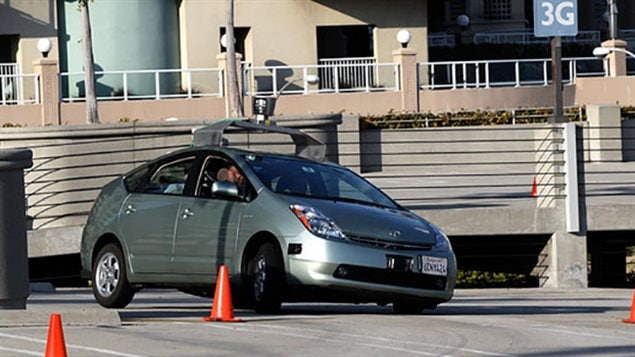These new self-driving vehicles are being touted as wonderful new technology. They’ll be safer, more efficient and provide a host of services. But they also provide new challenges for cities.
AnnaLisa Meyboom (PEng MRAIC) is an assistant professor in the School of Architecture and Landscaper Architecture at the University of British Columbia. She is also director of TIPS-lab, a UBC research group studying transport infrastructure and public space. She says intelligent policymaking and technology refinements will be needed to smoothly integrate automated cars into our urban designs and ensure the most benefits for everyone in society.
Listen
If and when driverless cars become more common on our roads, they will result in societal and physical changes to cities.
They may replace taxis and public transit, even private ownership of cars.
But they also raise many questions. Will they be able to cope with our extreme climate for example. What about insurance issues. What about government tracking of your habits and travels?
Promoters of this technology claim is there will be less traffic, and less need for parking as the cars can automatically go home after dropping you off, but will there really be less traffic and pollution if, for example, these cars are travelling empty back home after dropping the owner off at work, making four trips a day to and from versus the two trips now?
Cities now collect quite literally many millions of dollars in traffic infractions and parking tickets every year, how will cities make up this rather substantial shortfall if driverless cars never speed, and don’t need parking?
And are the tech companies downplaying such questions in order to promote their technologies?
They say people will be able to work and socialize as they commute, but is that much different than taxis and busses now?
Last year the Guardian newspaper indicated the FBI has said that it will be easier for police to track, catch and disable autonomous vehicles, but that terrorists might be able to use them as robot bomb delivery vehicles as well
Professor Meyboom says all these social, and urban planning questions need to be discussed now before the technology is perfected, but admits governments and society are already a little behind the curve.She says however that while tech companies estimation that driverless cars will be common on the roads in just a few years may be somewhat optimistic, she feels that it is probably inevitable.







For reasons beyond our control, and for an undetermined period of time, our comment section is now closed. However, our social networks remain open to your contributions.